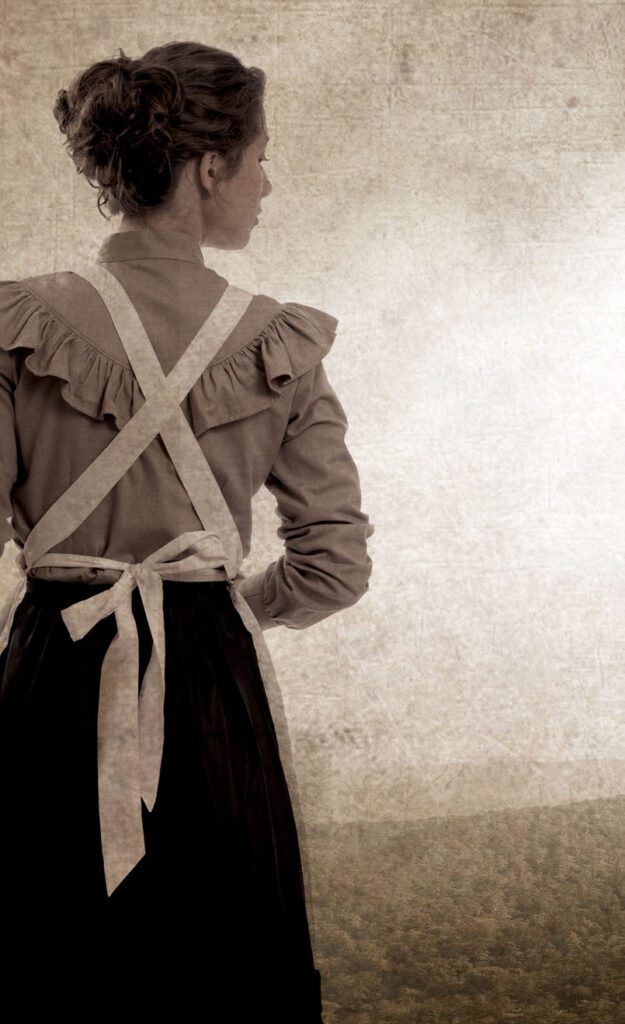01 May 2022 ‘Our Women of Noble Character’
By Vivian Lawson Hogue
Many people are not aware that the earliest listing of American generations began with the “Lost Generation,” covering 1883 to 1900. Faulkner County was only 10 years old in 1883, and the City of Conway emerged two years later. However, we can’t overlook the fact that there were residents of our forested areas before that. Obviously Native Americans were here, but there were white residents as well, some passing through, some staying. Our place in the Ozark foothills had abundant wildlife for the families of all.
Those families had goals that were far from those we observe today. They were purpose-driven, with that purpose being to be free and thrive. The framework of the family unit was that the husband and wife both produced food; the husband built the house and outbuildings and often made the family shoes; the wife birthed and raised the children. The children had age-appropriate chores and duties and considered hard work the norm.

The wife had to find materials to make clothing, rugs, and curtains all sewn by hand. Considering the number of children there often were, this was quite an endeavor. She made candles, carried water, milked cows, raised chickens, and conducted home schooling, teaching reading from the only book most people had, the Christian Bible. When older children were able, they helped tutor the younger ones.
She also preserved vegetables, smoked meat, cooked in the fireplace, and made her straw brooms. It was necessary for her to know her way around a pistol or rifle for protection from interlopers, whether humans or snakes, or perhaps for an opportunity of acquiring a squirrel or rabbit for supper. The frontier woman could ride a horse, and help deliver a foal, a calf, a goat, or a baby for the neighbor woman a mile away.
These descriptions fit life for many years until small communities grew, and wagons or carriages could access businesses and churches. My paternal grandmother, born in 1879, had 11 children, with the first one dying early. She lived her life much as described. She swept the rocky front yard with a broom. Cooking supplies were bought when money and transportation was available. She died in 1972 at age 94 a few years after her hip broke as she threw a pan of dishwater out her log cabin’s backdoor.
My maternal grandmother, born in 1874, had nine children, three of whom were stillborn and one who died at age 2 and another at age 28. She was blessed with better financial circumstances. She dressed her family nicely and rode her horse sidesaddle. I have her woven fabric and leather riding crop, an equestrienne item I would not know how to use. Both women cooked delicious food in and on iron cookstoves with no heat regulators. They knew cornbread was done by checking the grandfather clocks on the fireplace mantles or when the crusty scent suddenly brought five or 10 kids in from play or chores.
My mother, born in 1901, also worked hard for her family of seven, but what we could call obsolete inventions were blessings to her – a pop-up toaster, which I often use, and an electric skillet! In the 1950s, she was able to replace her wringer washer with a modern version. Saving another $230 would buy a dryer. Meanwhile, the clothes line that many subdivisions will not allow let us sleep on sun-kissed, wind-cuddled sheets. The old oiled mop that I still use under beds was put away when she bought her first Electrolux vacuum cleaner. I rely on it when my own is in the shop.
As her children came close to emptying the nest, she and dad changed directions in financial needs. Dad was the sole wage-earner, but it was their dream and goal that we should all have college educations. There were many sacrifices and probably some transactions occurring without our knowledge. However with many passing years and mother pinching pennies till they screamed, the result was three physicians and two educators. They would have welcomed a plumber, carpenter, and electrician, too, requiring only a few more squished pennies.
In the relative comfort of these days, we mothers should keep in mind that we may not always be comfortable. Coming times may be harsh and our children will depend on us to have Plan B in the cupboard when we’re out of Plan A. Just remember King Solomon’s advice in Proverbs 22:6 to “Train up a child in the way he should go; even when he is old he will not depart from it.” The child may stray from it for a time, but he will always know what was taught, and at any age can come back to it.
My siblings and I appreciate that our mother and those before her abided by that advice. With May’s day of tribute to biological and adoptive mothers, it is hoped that we will also recognize and thank the mothers who came centuries before.
Mothers of the “Alpha Generation” born between 2010 and 2025 … Be home, be the parent, hug them, tell them you love them, take them to church and go with them, feed them properly, give them responsibilities, give them attention … and teach them in the way they should go.
- My very own Mayberry - March 31, 2024
- The fine line between family and friends - March 10, 2024
- Seniors again - February 1, 2024











